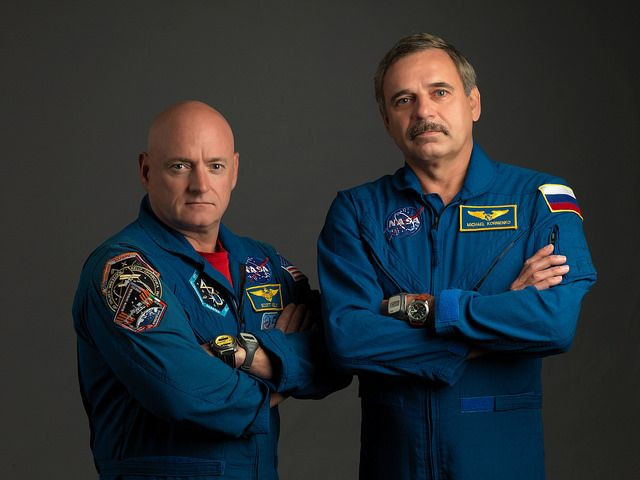The One-Year Crew: NASA Astronaut Scott Kelly, Cosmonaut Mikhail Kornienko Prepare For Life Away From Earth

NASA and Roscosmos, the Russian space agency, are collaborating on a bold mission to challenge the limits of the human body in space. Astronaut Scott Kelly and cosmonaut Mikhail Kornienko were selected to spend one year aboard the International Space Station. In an interview with International Business Times, the one-year crew discussed training for the mission, what life will be like aboard the space station and the earthly worries that go with spending such a long time in space.
Kelly's mission will be slightly different from Kornienko's, although the astronauts will collaborate on several scientific investigations while in orbit. Kelly has a twin brother, retired astronaut Mark Kelly, and NASA will use this unique opportunity to study the genetic differences between the brothers. Mark will stay on Earth and undergo tests, some involving blood samples, throughout the year-long mission. The brothers haven't really worked with each other leading up to Scott's departure in March. "There was one time he was here and I didn't even know it," Scott said.

Scott has spent the last two years training for the mission and will be the first NASA astronaut to spend a year in space. He also has to think about practical things, like the bills. Kelly, who lives with his son, said he has had his utilities shut off twice while he was in space. This time, he's making sure the bills are paid ahead of his departure on March 27. "I'm worried that, when I'm in orbit, I wouldn't even know," Kelly said. When he tries to explain his unusual circumstances to utilities representatives, Kelly said, "They don't believe me!"
At the space station, Kelly will take part in more than a dozen scientific investigations of the long-term effects of microgravity on the human body. The data will help NASA plan a manned mission to Mars and could provide insights into the human body that could be used on Earth. "Preflight, I don't know how many hours I spent in the MRI machine, CAT scans, things like that. It's been busy," Kelly said.
"Over the period of a year, on any given week, I'll probably do blood, urine, feces, saliva, pharynx, larynx, skin samples, probably more than a dozen times. Ultrasounds, monitoring my eye, my carotid, my heart, my brachial artery, my thigh and calf. Other eye exams involving other medical devices, taking pictures of the back of our eye, optic nerve and retina, things like that," Kelly said. "Psychological experiments, experiments involving our cognitive ability, our hand-eye coordination and our brain function over a long period of time. A lot of the science involves blood and urine samples, everything from the one-year science to normal six-month stuff we do, along with all the genetic studies involving my brother and me."
While Kelly will be the first NASA astronaut to spend a year in space, Kornienko will be the fifth cosmonaut to accomplish the feat. The cosmonaut was able to ask retired cosmonaut Vladimir Titov, who spent a year in space in 1988, about the experience. "We met in the gym and he's a very approachable person. We'll regularly meet there and talk. He gave me his picture and best wishes," Kornienko said. "Of course, I asked him if it was difficult to fly for a year and he said, 'Yes, it takes its toll, but we could walk on our own when we came back.' They gained weight when they came back, and that gave me a great boost."
© Copyright IBTimes 2024. All rights reserved.






















